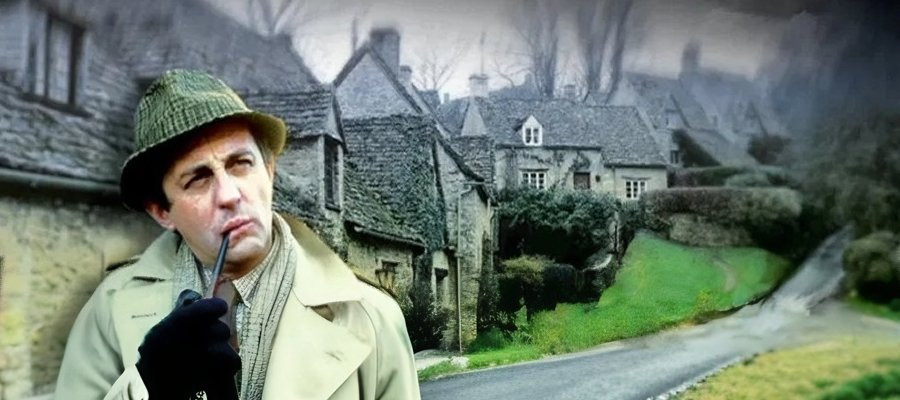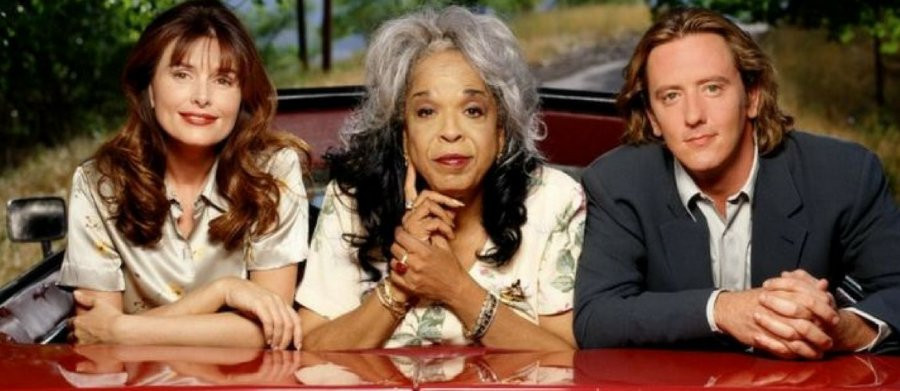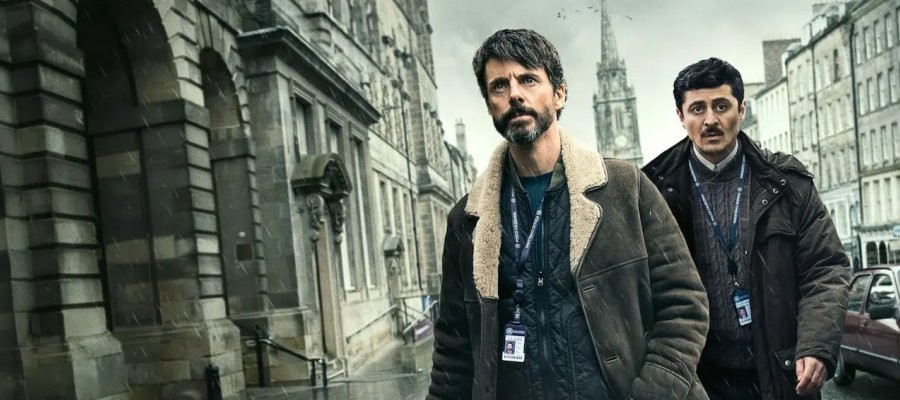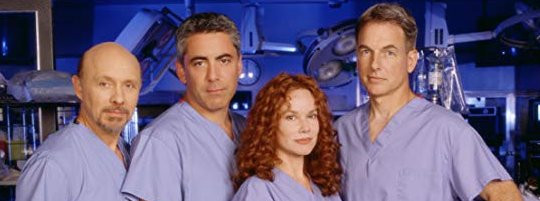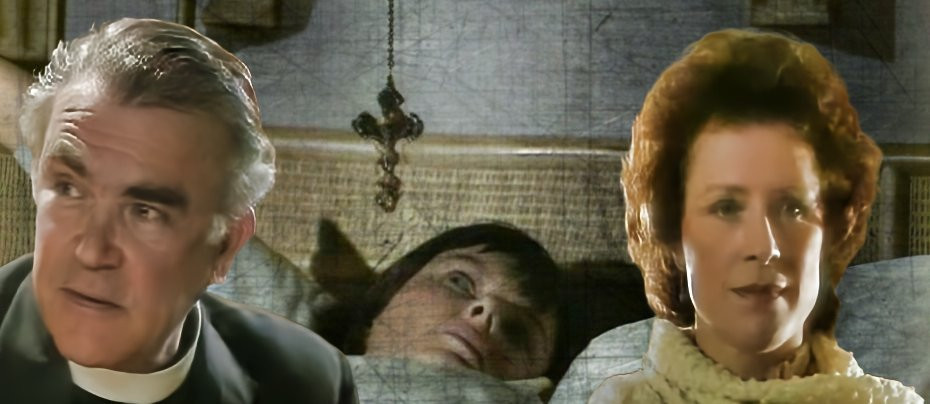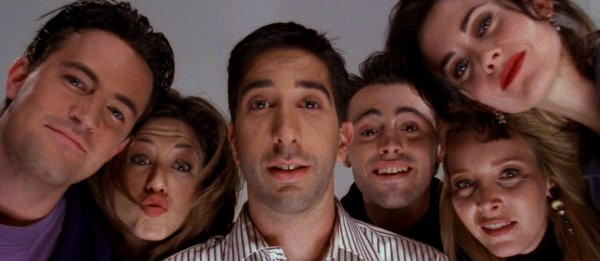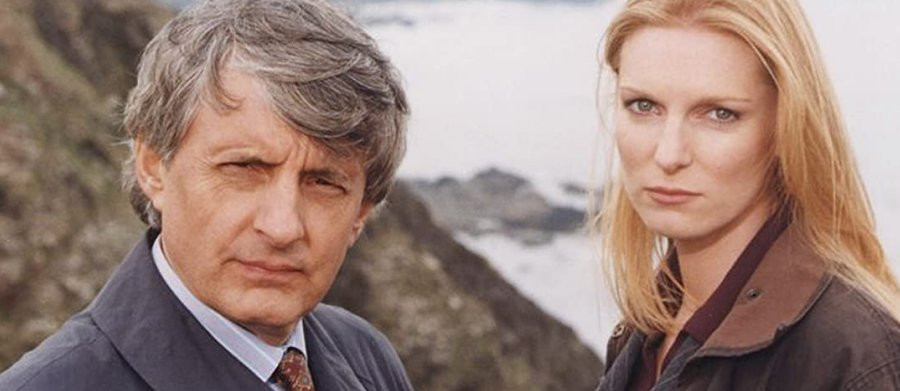
Wycliffe
1994 - United KingdomWycliffe was originally broadcast from 1994 to 1998. As part of ITV's Sunday night schedule, it was designed to get the viewer ready for another working week with as little aggravation as possible.
It always seemed to me to be the type of programme aimed squarely at viewers in their fifties, like my parents. I'll confess I hardly ever watched it at the time because my fifties seemed a long way away and it clashed with quiz night at the Harvester pub in Yarm.
ITV3 have recently started showing reruns of Wycliffe so, seeing that I am now in my fifties, and I no longer frequent pubs, I thought I would give it a try.
In a chronology of televisual Cornwall Wycliffe would sit somewhere between the sedate, fully clothed Poldark of the 1970s and the brash, topless model that we had recently. The show follows Detective Superintendent Charles Wycliffe and his team as they track down wrongdoers in picturesque Cornwall. He is played by the admirable Jack Shepherd, ably assisted by Helen Masters as DI Lucy Lane, and Jimmy Yuill as DI Doug Kersey. On the home front, he has a supportive wife, played by Lynn Farleigh, and a couple of pesky kids who are dangerously close to developing lives of their own.
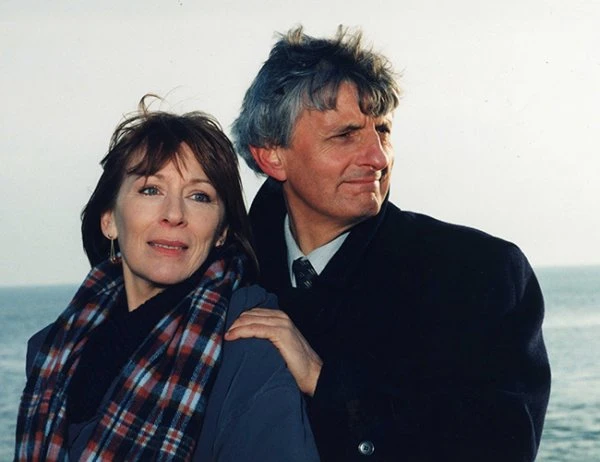
Don't do what I did and watch the pilot episode Wycliffe and the Cycle of Death midway through watching the series. As far as Lane, Kersey and Mrs Wycliffe are concerned, the pilot is a case of same names, different faces. It took me a few minutes to adjust to the alternative personnel. There's nothing wrong with Carla Mendonca, Kevin Quarmby and Lucy Fleming so I don't know why they were discarded in the interim. Whenever I see a change in personnel I always recall the disappointment I felt watching an episode of Get Some In! The recruits had been shipped off to Malta, one of them with a different face. 'Who's that?' I said, 'That's not Jakey Smith.' It was and it wasn't. Jakey had morphed from Robert Lindsay into Karl Howman as, presumably, Mr Lindsay was busy with Citizen Smith. It's not Karl Howman's fault but I always begrudge the fact that in the last series of Get Some In! he wasn't the real Jakey.
It must be discomfiting to turn up to work and find that your colleagues have changed faces overnight. In these straitened times, imagine working from home and discovering that your nearest and dearest are imposters and your life has become an episode of The Twilight Zone. Such a dislocation would send many a home-worker scurrying for the sick note. The new faces don't seem to have fazed the dogged Wycliffe. He's got a job to do, and he won't let a few strangers stand in his way.
The programme is topped and tailed by a fabulous haunting theme tune from Nigel Hess. I think it's equally as good as the splendid theme from Inspector Morse. It always surprises me how much ingenuity goes into writing music. Barrington Pheloung based the Morse theme on the dots and dashes in the Morse code for the main character's name. There's nothing new under the Oxford sun. The great Ronnie Hazlehurst employed a similar ruse a few years earlier for the theme from Some Mothers Do 'Ave 'Em. When you listen to this you're hearing the letters that make up the title of the show converted to Morse code which is then transformed into musical notes. A piccolo has never sounded lovelier. I don't know what's going on under the bonnet of the Wycliffe theme so I'm probably missing musical motifs galore. All I can tell you is that it is a marvellous tune. Mr Hess also composed the themes for Campion, Maigret, Dangerfield and Hetty Wainthrop Investigates. I haven't heard any of them but, if Wycliffe is anything to go by, I bet they're good.
It must be a sometimes-tense relationship between Her Majesty's Constabularies and TV companies, with the former never wishing to cede too much territory to the latter. What's in a name? Well, quite a lot it seems if you're a police force (or is it a service now? I'm never sure). Only lucky old Inspector Morse gets to work in a purely non-fictional jurisdiction and the residents of the Thames Valley will no doubt feel in safe hands whenever he's on telly. His underling Inspector Lewis gets an unwanted transfer to the completely made-up Oxfordshire Police while Vera is in the employ of the entirely non-existent Northumberland and City Police. For optimum wordiness, they may as well have added 'incorporating the one that the late George Gently used to work for'. If I was a criminal I would consider it an honour to be nicked by a police officer with such an impressive-sounding and TV literate warrant card.
Wycliffe and his squad fare no better than most. In the real world they would be employed by Devon and Cornwall Police but, in TV land, they're working for the South West Constabulary.
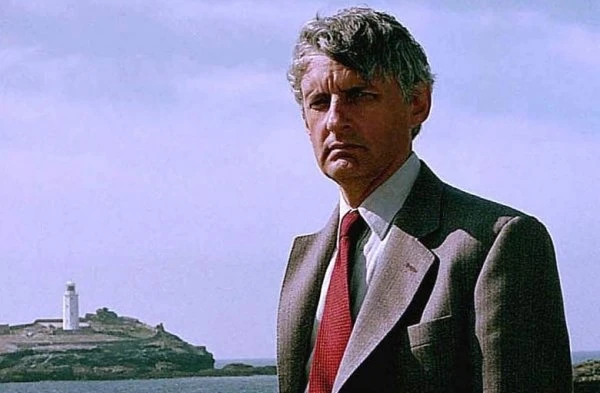
Wycliffe is given to staring moodily out to sea and improvising moody jazz-infused tunes on the piano. His favourite TV show ever is Moody and Pegg. I made that last bit up but the point I'm trying to make is that he's moody. His wife is a headteacher and they have a teenage daughter and a teenage son. Remember when I said there's nothing new under the Oxford sun? Well, there's nothing new under the Cornish or Midsomer sun either. Compare and contrast his home arrangements with Midsomer Murders (either Barnaby household, take your pick). Going back in time, Wycliffe's struggles to understand the younger generation are reminiscent of similar efforts made by George Gideon in Gideon's Way. This was made in the 1960s so the only job Mrs Gideon has is ensuring that her husband and family are fed and clothed. If you fancy going Stateside, one of my first TV memories was The Smith Family in which Henry Fonda combined life as a husband and father with being a cop. I remember he used to say 'Freeze!' a lot. You'd never hear Wycliffe say this unless he's orchestrating a game of statues.
I love it when a connection comes together. Clive Francis appears in the penultimate episode Scope as a uniformed Detective Chief Inspector. Mr Francis is the son of Raymond Francis who played DCI Lockhart in the 1960s cop show No Hiding Place. If intended, it's a thoughtful touch. If unintended, I'll put it down to a charming synchronicity. The only disappointment is that Francis turns out to be the murderer. I should perhaps have preceded this statement with a spoiler alert but I'm not the most perceptive viewer when it comes to whodunnits and even I could see this plot development a mile off.
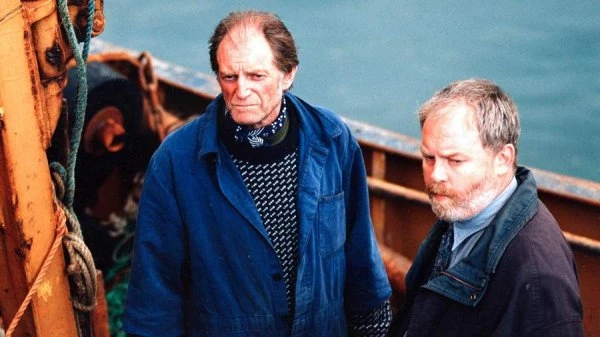
Peering at far-off Cornwall from the other end of England, places like Truro, Penzance and Bodmin always sounds romantic and exotic. I wonder if Cornish folk experience a similar wave of exoticism when they hear of Middlesbrough, Stockton-on-Tees or Redcar. Romantic or not, the best episodes ignore the setting and revolve around the psychological landscape and the hardships experienced by people struggling to survive. Living in beautiful Cornwall is fine but what are you going to do if you've got no money or prospects? The episode Total Loss depicts fishermen driven to committing insurance fraud to make ends meet. Close to Home gives a brief glimpse of an out of season caravan park so grim that it could be anywhere Up North.
Crazy For You features a fine, creepy performance from John Shrapnel as a psychiatrist who may, or may not, have set up one of his patients to kill his wife. Feeding the Rat is an intense study set in the world of rock climbing but is really an examination of the competitiveness of some, if not all, men. How far would you go to scupper the ambitions of a friend who is more talented than you?
The only thing I can say about episodes like Strangers Home and Seen a Ghost is that they are bizarre tales of the sheer weirdness of human behaviour and are well worth a watch.
Wycliffe's nemesis in a handful of episodes is the slippery Deputy Chief Constable Stevens.

Played by Michael Attwell, Stevens marks his own card right from the off. From what I have seen of the police on the news, who would want to be appointed to a position of rank within it? It seems to be a poisoned chalice filled to the brim with backbiting and office politics. Anyone applying to become, say, a DCC should have their application rejected straightaway on the grounds that their judgement can't be trusted. The role of DCC Stevens is so cartoonishly written that I keep expecting him to end every bit of dialogue with 'Abadee, abadee, abadee, that's all folks'.
Stevens is the face of modern policing which means that he has to spout lines about career development indicators, enablers and public relations. I knew the character was a wrong'un as soon as he said DI Kersey should be sacked. He also tries to quietly edge Wycliffe into retirement but Wycliffe's having none of it and shouts at Stevens that he will stay on until retirement age. Wycliffe is a bit of a maverick too, unafraid of telling senior officers where to get off.
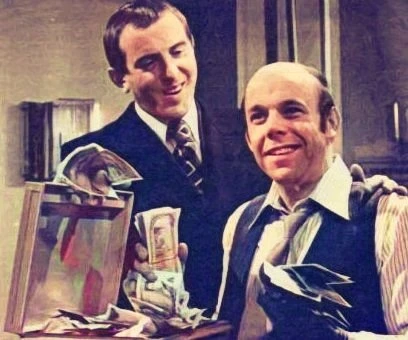
Mr Attwell seems to be thoroughly enjoying himself and thriving on a bit of responsibility. I can only recall him from Turtle's Progress, in which he was marvellous as the imposing heavy Razor Eddie Malone. I used to love Turtle's Progress, so much so that I am fearful of watching it again in case it isn't as good as I remember. It dates from the late 70s/early 80s so there is a good chance it hasn't completely withstood the test of time. Mr Attwell was a talented cartoonist and I remember the TV Times printing a sketch he produced of Razor Eddie and the eponymous Turtle played by John Landry. He depicted Turtle with dollar signs in his eyes which was a perfect summation of the character's character. I went on Google to see if I could find the sketch but the search was fruitless. You can find all sorts of rubbish on the internet but apparently there's no place for interesting stuff like this. Then again, perhaps my memory is playing tricks on me....
Michael Attwell died in 2006 taking with him part of my TV-watching past. I don't know why his role as Razor Eddie has stuck in my mind so much but it has. He and Mr Landry made a good team, easily as memorable as the pairing of Dennis Waterman and George Cole in the very similar Minder. They had a better theme tune, too. 'Once more with feeling I will try once again, I will try to explain myself to you', sang Alan Price to kick things off. I've come to appreciate the quiet desperation of those lines. It is all any reasonable adult can hope to do, isn't it? Anyway, if there ever was a battle between Minder and Turtle's Progress, the latter lost out and packed up its bags after two series. This is a real shame.
DCC Stevens leaves South West Constabulary for a more exciting but no doubt equally fictional branch of law enforcement. His replacement is DCC Routh who has similar plans to show Wycliffe the door. Wycliffe shouts at her, as well. It's fair to say that, after yet another attempt to give him his cards, Wycliffe is livid. As the closing credits rolled, he took up his position on the rocky cliffs and subjected the Atlantic to a particularly ferocious glare such that, if looks could kill, the Scilly Isles would be dead. I'm no psychiatrist but, if I was, my counsel to Wycliffe would be that he should watch a bit of Bob Ross and calm the hell down. The reason they're so desperate to pension Wycliffe off is that he is shot at the end of the feature length episode Dance of the Scorpions which closed out season four. I think this episode is an attempt to spice up the format, similar to the way that edgier characters were introduced at the end of season three.
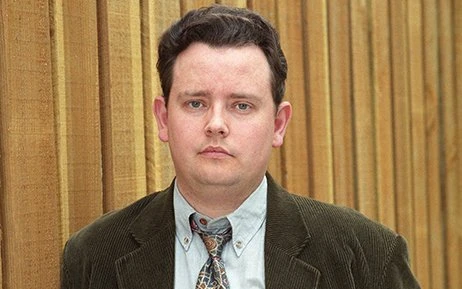
The earlier episodes feature the likeable and easy-going DC Potter and DS Dixon but from season four onwards they were replaced by a rogues' gallery of changing faces. DC Derek Hall and DS Caplin seem amiable enough, but I have little time for the detectives played by Marc Warren and a pre-Gene Hunt Philip Glenister. I'm all for change but, after they left, I missed the gentler characterisations of DC Potter and DS Dixon. The crudeness of the Warren and Glenister characters seems to belong to another show entirely. Dance of the Scorpions is probably my least favourite episode. It is a portentous title which, if I remember correctly, refers to how a police informant views dealing with the bad guys. Leslie Grantham puts in a guest appearance as a shady businessman who retreats to Cornwall so that he can carry on his gun-running activities out of the glare of the big city lights. It's an unconvincing tale of exploding boats, police surveillance and a miraculous return from the dead for Mr Grantham. He uses this return to lie in wait for Wycliffe in his home so that he can finish him off. Wycliffe survives but is shot in the process. He does alright out of it because he ends up with a Queen's Gallantry Medal. There's more than a touch of Frost here, I think, except that Frost earned himself a more lofty George Cross.
I watched a documentary about Elvis a while ago. It was a chronological trawl through some of his stage performances and one of the last clips was from 1977. It depicted an overweight Elvis chopping away on the piano singing Unchained Melody before being helped off stage by a couple of his minions. Please don't let it end there, I thought, leave us with him in his prime. I can't have been alone in thinking that and I'm glad to say that it ended with a piece of vintage Elvis from the 1950s. If it's good enough for Elvis, it's good enough for Wycliffe. I can't end on the sad, bloated Dance of the Scorpions so I'll choose to finish with the one that immediately precedes it – the lithe Old Crimes, New Times. This crams so much into its sixty minutes. We've got (deep breath) Catweazle as a law court judge, good old Jim Norton cast against type as a barrister, thugs making a mockery of the court, a lazy policeman who fails to sort out a victim's compensation claim, a tense cold case in which the culprit is the now dead stepfather, a jolly pathologist tucking into a full English and Wycliffe's annual appraisal that DCC Stevens thoughtfully carries out in the back of his car. For those viewers who like their vengeance served cold, it also comes with a satisfying ending.
If Stevens had a theme tune it would be The Power Game by Cyril Stapleton and his Orchestra. He's on a power trip and loves every second of it. Almost certain that he knows the culprit in a years-old cold case he sets Lucy Lane off on a merry chase to try and track down the killer. He makes sure the investigation is carried out at one remove knowing that, if he is wrong (and, of course, he is), Lucy will carry the can. Wise old Wycliffe intercedes before any damage is done and gently points Lucy in the right direction. 'These are shark infested waters towards which you're swimming' Wycliffe tells her and he should know because he's swam them.
Lucy is earmarked for accelerated promotion but part of the charm of her character is that she appears to have been promoted way beyond her capabilities. She's a perfect example of the Peter Principle in motion, kept going by a senior management eager to tick boxes and fill quotas.
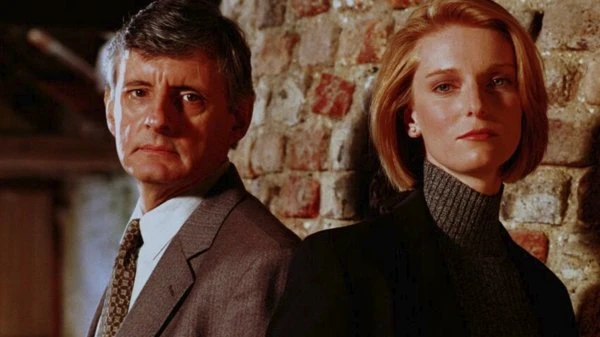
Lane is skilfully played by Helen Masters who I think does a good job of depicting the vulnerability of a character never sure of her own abilities. Ms Masters is another one who should appear on TV more often. She brightened up a tedious episode of Midsomer Murders as a solicitor with an unexpected risqué side but, unfortunately, I haven't seen her in anything else. This is also the episode in which station stalwart Boiler Tinnion dies. 'He had two heart attacks' Doug Kersey explains to Wycliffe, before adding 'It was the second one that killed him'. This is such a great Doug one-liner but it's lost on Wycliffe. I admire old Wycliffe but he couldn't detect a joke if it threw away its gun and came out with its hands up. He should lighten up and spend more off-duty time with Doug.
There's a great scene in Frasier in which the good doctor is tinkering on the piano and then, realising he is on his own in the apartment, bangs out the opening bars of Great Balls of Fire. I think Wycliffe could use some of this devil-may-care attitude. I'm not saying he should belt out a rock and roll classic. I'd settle for something jolly like Roll Out the Barrel played in the flamboyant manner of Mrs Mills, just to show that he likes to have a laugh every now and then.
Of course, the purpose of the late, lamented Boiler who, to my knowledge has never previously been seen or referred to, is to make Wycliffe question whether it is all worth it. Should he stay on at work and risk keeling over months into retirement à la Boiler or should he cut and run and maximise the time spent with his piano, wife and kids (in that order)? It's riveting episode which I can watch over and over again. In fact, I have done.
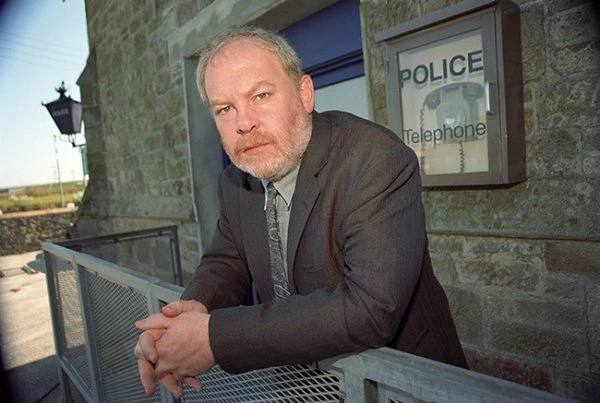
DI Doug Kersey is one of my favourite characters. Drawing on his roll-up cigarette to extract the last bit of goodness out of it, he is a Falklands veteran and a Bloody Good Copper. As is usually the way with bloody good coppers in TV shows, he becomes disillusioned when he appears to be the victim of a witch hunt after a suspect dies in his cell. It turns out alright in the end though and there's a great scene at the end of Seen a Ghost in which Kersey is exonerated and serious questions are asked about Stevens' management style.
The episode On Offer ends on a bright note for Doug as it shows him calling at the house of an attractive woman he had met during the course of his enquiries. I hope it leads to a romantic liaison for Doug because I wouldn't begrudge this wonderful man anything, certainly not happiness. He disappears from the last couple of episodes, seconded to Essex to help them with an unexciting fraud case. At least with all those invoices and associated filing Doug won't be short of paper for his roll-ups. Doug is reliable and the thing about reliable people is that they tend to be taken for granted. But you don't half miss them when they're not there. The real reason for his absence is that Jimmy Yuill became ill and his illness led indirectly to the show's cancellation.
In the final episodes an unhappy, pregnant Lucy seems to have been given a get-out-of-jail-free card with the possibility of jacking it all in to run a hotel. This seems a bit far-fetched but Lucy would be a fool not to take it.
It ended in 1998 and the sad thing about Wycliffe is that it could have ran for a lot longer. The man himself could have been pensioned off to spend more time at home. Wycliffe without Wycliffe? Why not? They did it with Taggart. The fragile Lucy Lane could resign to run that hotel. There's always a place for Helen Masters so she could be replaced by her identical but more resilient twin sister Veronica 'Ronnie' Lane.
DI Doug Kersey, on his return from Essex, would continue as the trusty second fiddle, happier now that he has found a little contentment with the attractive woman from On Offer.

The reasons I didn't watch it when first broadcast are the reasons I like to watch it now. At its best it deals with the mundane, unglamorous aspects of everyday life. It doesn't need car chases. Or boat chases. Also, I've since learned that most things that Jack Shephard appears in are worth watching.
After watching the reruns I've deduced that either Wycliffe has matured or I have. Perhaps the moral of the tale is that perhaps some things you're just not ready for. So, if you're relatively young and Wycliffe doesn't appeal to your sensibilities come back to it in another twenty five years or so - you'll love it.
Seen this show? How do you rate it?
Seen this show? How do you rate it?
Published on August 20th, 2021. Written by Andrew Cobby for Television Heaven.


